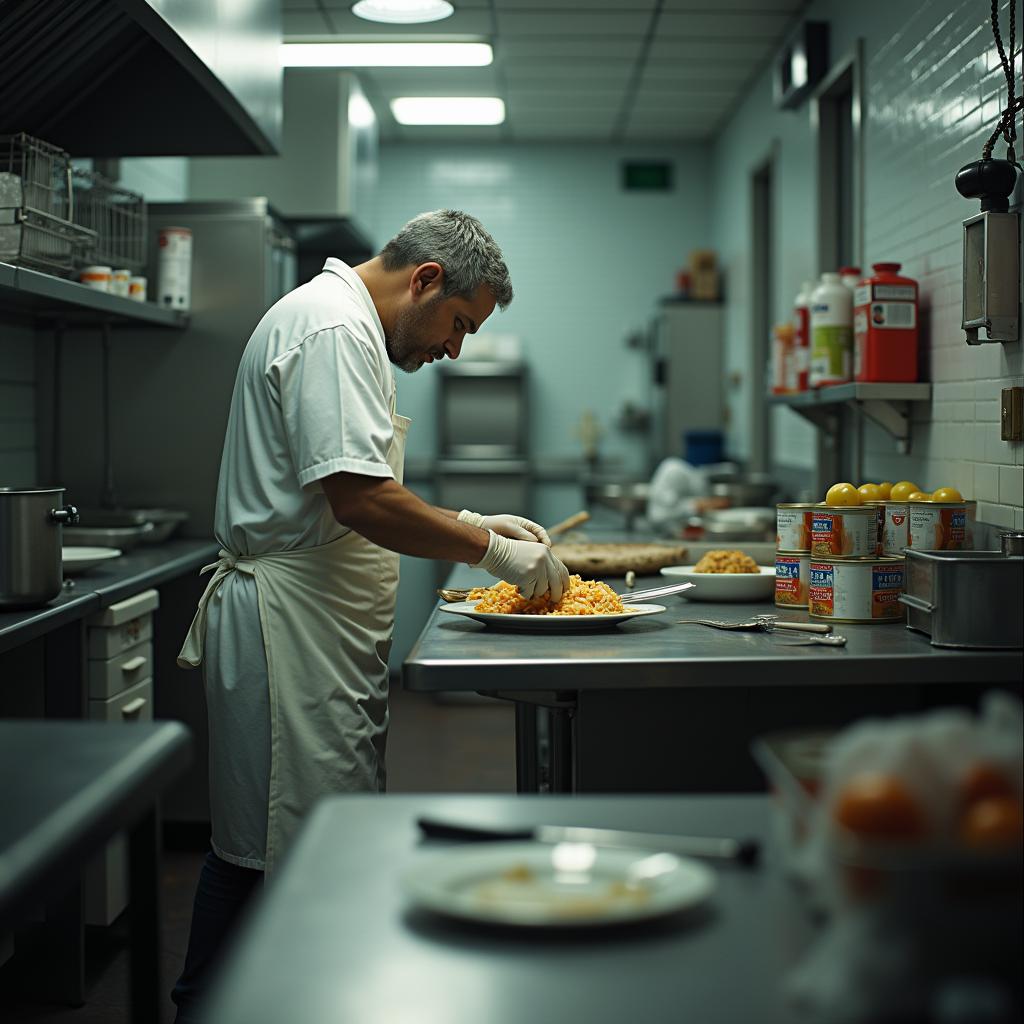
Imagine trying to whip up dinner for nearly 4,000 people with dull knives, chained to the counter, and every ingredient scanned for contraband. That’s just another day for Luis Reina, a cook at Rikers Island, New York City’s infamous jail complex.
Reina, 56, commutes two hours from Brooklyn to prepare meals like turkey stew, rice, and cucumber salad for detainees and staff. The kitchen is a high-security zone, with every spoon locked away and tomato can lids thrown into a caged trash bin. Even the kitchen assistants in jumpsuits are patted down before they can start chopping vegetables.
Despite the challenges, Reina takes pride in his work, though he’s frustrated by the lack of fresh ingredients. Most of the food is canned or frozen, and salt has been banned since 2014 for health reasons. Every recipe is dictated by the Mayor’s Office of Food Policy, leaving little room for creativity.
The kitchen operates 24/7, feeding thousands daily. Some nonviolent detainees work there, earning just $1.45 an hour. It’s a tough environment, but for Reina and his team, it’s about more than just food—it’s about keeping people nourished in a place where hope can feel scarce.
While Rikers Island has long been criticized for its conditions, the cooks see their work as a small but vital step toward change. Whether it’s a hot meal or a simple act of care, they’re doing their part to make a difference, one plate at a time.
